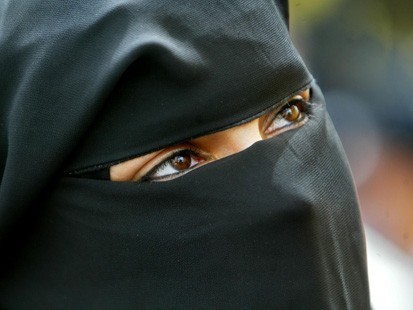Ok to shun burqa in class, but not in public: Darul
 Breaking its silence, influential Islamic seminary Darul Uloom, Deoband on Tuesday said it was all right for girls to shun the burqa inside all-women classrooms, as top Indian clerics debated the recent ban clamped by Cairo’s Al-Azhar University on wearing the niqab (veil) on its women campuses.
Breaking its silence, influential Islamic seminary Darul Uloom, Deoband on Tuesday said it was all right for girls to shun the burqa inside all-women classrooms, as top Indian clerics debated the recent ban clamped by Cairo’s Al-Azhar University on wearing the niqab (veil) on its women campuses.
Darul’s views may have far-reaching effect as it oversees Islamic education in its chain of over 1,000 countrywide Deobandi madrasas, including women-only schools.
Darul Uloom, ranked the next most important Sunni theological centre after Al-Azhar, however, reacted sharply to the remark of Sheikh-ul-Azhar, or head of Al-Azhar University, Mohammed Sayyed Tantawi, that the veil “has nothing to do with Islam”.
Darul shares a fraternal link with Cairo’s Al-Azhar, from where US President Barack Obama made the famous speech in June, reaching out to the Muslim world and calling for a new beginning between his country and Muslims. Both institutions work closely on the issues of Islamic learning.
Darul Uloom vice-rector Maulana Abdul Khaleque Madrasi conferred with the institution’s chief mufti (head of edict department), Habibur Rehman, on Tuesday and concluded that there was no problem if students in girls’ schools relaxed their dress code.
“Fair enough,” Madrasi told HT. He, however, said Darul would not advise Indian women who wear the veil to drop it in public. “Veil is important according to Shariah (Islamic law) and women have to be in burqa in public,” Madrasi said.
Delhi-based educationist Firoz Bakht Ahmed said in many of the Capital’s Muslim girls’ schools, like Rabia School in Gali Kasimjan, students either did not wear the veil or took it off once inside.
“I remove my veil during class,” said Ayesha Khatun, a student in Jamiat-us-Salehat, one of India’s largest girls’ madrasas in Uttar Pradesh’s Rampur.
Islamic scholars have varying views on how much of a woman’s body should be covered. The Quran does not clearly outline a dress code for women, but calls on both men and women to “dress modestly”.